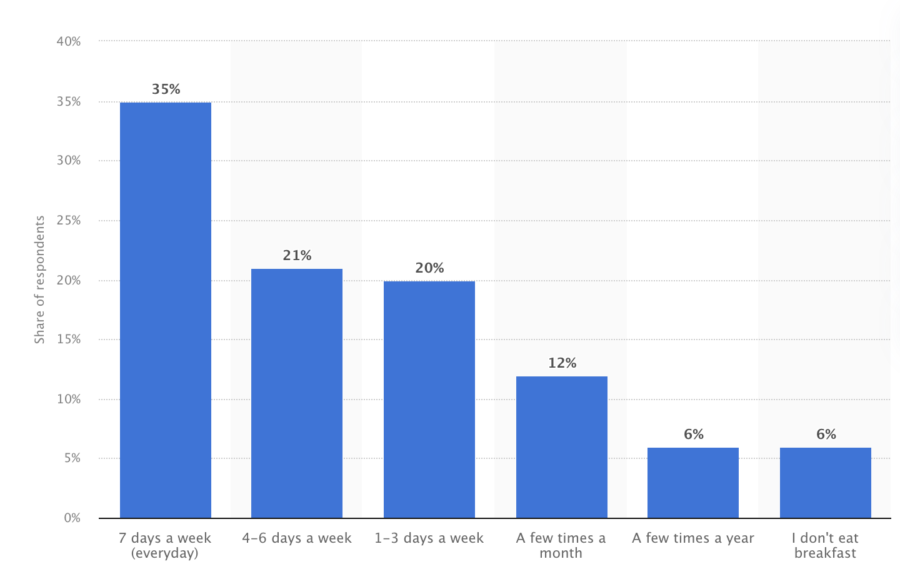High School Students Shouldn’t Skip Out on Breakfast
Everyone says breakfast is the most important meal of the day, but is that really true? In my opinion, yes it is. According to research, many people believe it is the most important meal of the day, and there is plenty of science to back it up. However, more than half of us skip breakfast every day.
Many high school students run out the door in the morning, hoping to make it on time to their first class. Breakfast is the easiest meal to skip in the morning to save time, but it should be prioritized. The strategy of skipping breakfast frequently backfires because running on an empty stomach can leave you tired and not performing your best during class. If you don’t eat breakfast, you may feel sluggish and find it difficult to concentrate. This is due to your brain not receiving the energy (glucose) it requires to function. So, eat your breakfast; it only takes a few minutes to do so.
As a student at BSM, I rely on a nutritious breakfast to get through the day. BSM classes require concentration and a full attention span, as well as good listening skills, and eating breakfast helps me achieve this. If I don’t eat breakfast before, I tend to lose focus during class and teacher lectures. Therefore, if I don’t eat breakfast at home, I always stop at Taher for a breakfast sandwich or potatoes before class starts.
It’s not just about the concentration that comes along with eating breakfast but, breakfast can help students meet their daily nutrient needs more easily. Breakfast serves up nutrients in receiving vitamins, minerals, and nutrients according to food scientists at the Better Health Channel. Breakfast foods are rich in key nutrients such as folate, calcium, iron, B vitamins, and fiber. People who eat breakfast are more likely to meet their recommended daily vitamin and mineral intakes than those who do not.
Students who eat breakfast before beginning their school day not only focus better, but they also perform better on academic tests in math, reading, and science. According to a study published in the Journal of Economics, students who attended schools that provided free breakfast before class performed approximately 25% better on math, reading, and science tests. According to researchers, this is because breakfast provides the energy required to improve cognitive, or thinking, speed, and problem-solving skills.






































![Teacher Lore: Mr. Hillman [Podcast]](https://bsmknighterrant.org/wp-content/uploads/2025/03/teacherlorelogo-1200x685.png)




